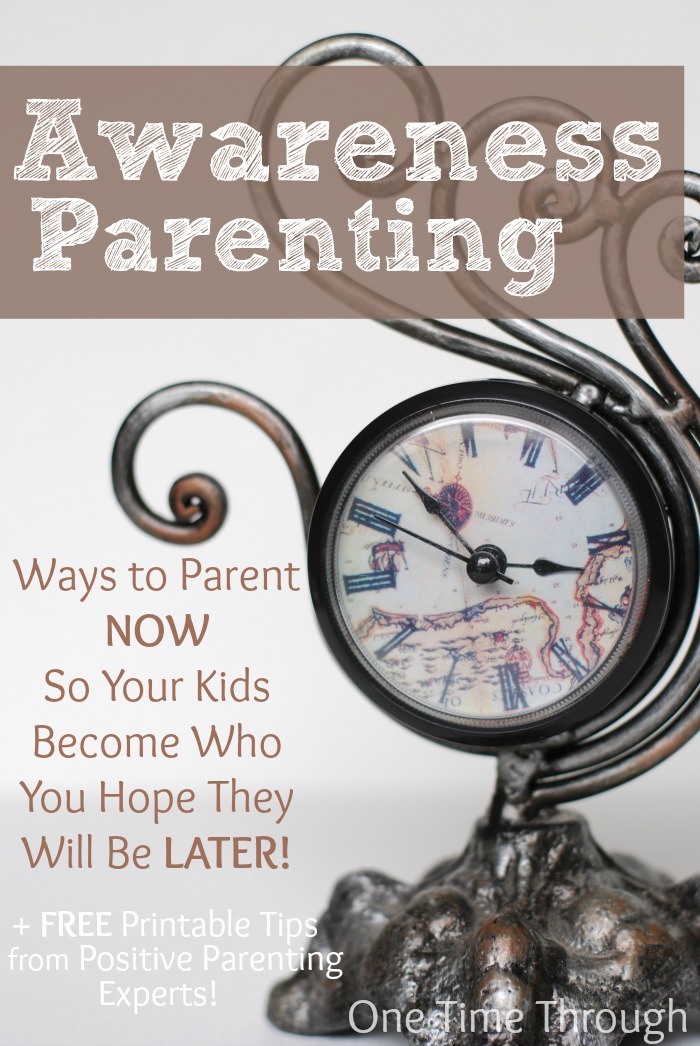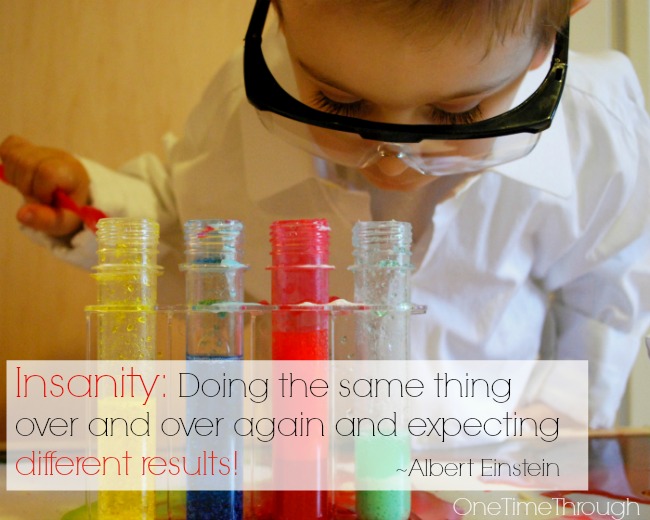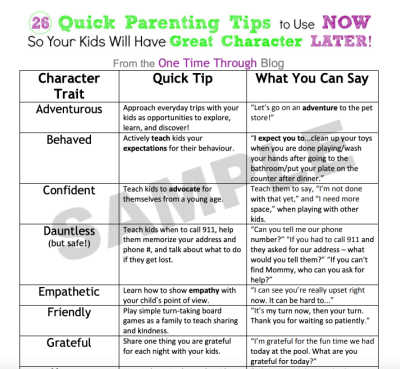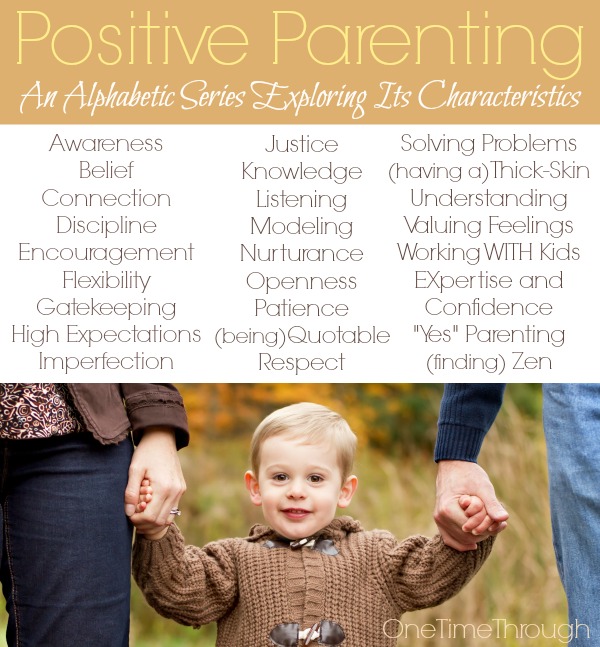Welcome to the first week of our Positive Parenting blogging series! Today’s topic is awareness parenting. What do I mean by that?
Basically – we’ll be talking about all the things you can do as a parent now to ensure that your kids end up how you hope they will be as adults later – from a positive parenting perspective of course!
As I described in our introductory What is Positive Parenting? post, although I had worked with children in various capacities for many years, it wasn’t until I became a parent and I tapped into a body of knowledge and skills usually referred to as Positive Parenting that I really felt like I could confidently deal with any parenting situation in a constructive way without getting stressed out.
In this series, my goal is to share with as many parents (and teachers) as possible – some of the skills and knowledge that I have learned, some examples of how I’ve used them, and personal insights from someone with a background in Psychology, Behaviour Therapy, and Education.
Becoming Aware
For me, the biggest lightbulb moment in helping me become an aware parent, was when I was sitting in a positive parenting workshop and I was asked to think about how I wanted my son to be in 10, 15, or 20 years from now.
Why don’t you humour me a moment and create your own mental list. Got it? Okay – now scroll down.
All the participants in the workshop I took started calling out characteristics like: independent, emotionally healthy and happy, caring, high self-esteem, responsible, intelligent, etc.
Were any of these on your list? I would bet that a lot of your list overlaps with this one. In my group – we almost all had the same goals for our kids.
At that point, the facilitator asked us to think about what we were doing right now to encourage those traits. WOW! Okay – that was a mindblower!
Just thinking about what our parenting priorities were right now and putting them into the perspective of how we want our kids to turn out later – was a really powerful reflection.
For example, I would bet that some of the things we spend a lot of time on with our kids, like getting them to cooperate, sit still and generally do what we want – are not things that you might want for your child as an adult.
On that list of future characteristics, you probably didn’t think of your future child (as an adult) being blindly obedient, quiet, passive, unable to speak up for themselves, unwilling to take risks, or be afraid to disagree – right?
So the big idea here is to start parenting now in a way that encourages all those positive traits listed above – as difficult as that may be.
So I compiled a little list of some of the things that I reflected on and that you might want to think about too. Many of these topics I have already written about in a previous Teaching Kids About Character Series, and so I’ve linked some of them up to related posts.
Reflections for Awareness Parenting
Independence – Are we providing opportunities for our child/children to do things by themselves? Are we giving them lots of choices? Do they have control over certain parts of their life and routines?
Emotionally Healthy and Happy – Are we connecting with our kids regularly? Are we teaching them how to handle sadness, anxiety and anger, or are we encouraging them to suppress those feelings?
Caring – Are we teaching our kids about the effect of their behaviour on others? Are we modelling empathy and teaching them to see others’ points of view? Are we encouraging kindness?
High Self-Esteem – Are we encouraging our kids to speak up for themselves? Are we teaching them how to disagree agreeably? Are we truly listening to them and respecting their needs and wants?
Responsible – Are we giving our kids enough responsibility? Are we asking them to contribute meaningfully to the family? Are we teaching them about the importance of making amends when they make mistakes?
Intelligent – Are we reading to our kids regularly? Are we following their interests and supporting their unique talents and strengths? Are we encouraging their curiosity?
For me, keeping this perspective (of parenting now for later) has made all the difference – especially in circumstances where I’ve been stressed out with my son in the past. It has helped me be less reactive to his challenging behaviours and more proactive in my parenting.
So you want some examples now right?
What Does Awareness Parenting Look Like in My House?
Avoiding Power Struggles while Encouraging Independence
When my son doesn’t want to wear the clothes that I’ve picked out, or eat the food that we put on his plate, I no longer get into a power struggle, I simply offer him choices.
e.g. “You need to get dressed to go out. Would you rather wear this outfit or that one?” or “Pick two pieces of clothing to put on yourself and I’ll help with the third.” And “I would like you to have some vegetables for dinner. Would you like peas or carrots? Would you like one spoonful or two?”
As much as possible, I let him make choices for himself, and experience any natural consequences of his decisions.
Gaining Cooperation and Promoting Problem Solving
When my son doesn’t want to cooperate with a request, I try to find out what the problem is, instead of forcing him to obey.
Often just asking, “I see you don’t want to do this. What’s the problem here? How can we make this easier?” opens the gates to discussion, problem solving and compromise.
Dealing with Negative Emotions in a Healthy Way
When my son is sad or angry, I allow him to express those feelings (in an appropriate way), and try my best to accept them and empathize, without asking him to stop crying, or getting annoyed or impatient like I used to.
I’ve learned from reading numerous books on parenting and emotional health that these skills must be learned early for better coping later. Some of my favourite books are shown to the right of this post.
Handling Mistakes and Accidents while Preserving Self-Esteem
When my son makes a mistake or has an accident, I simply ask him to help solve the problem or make it better somehow, without making him feel ashamed or blamed.
I want him to always be honest with me when things go wrong as he gets older, and to feel he can come to me for help when needed down the road.
These are just a few of the changes that I made after my perspective changed. And I have to say – they’ve made life at my house so much easier and more positive – both for my son and I (and my husband too!).
I’ve compiled a more comprehensive list of ideas, incorporating my favourite advice from positive parenting authors and experts, in a new printable resource called:
26 Quick Parenting Tips for NOW that will Help Your Child Have Great Character LATER
This resource lists 26 positive character traits, (which you may recognize from our Character Series), including the ones we discussed above. Each trait has a simple idea for encouraging it now, as well as examples of what you can say to your child.
To download this resource, click on the image below.
Follow my Positive Parenting Pinterest board where you will find all kinds of positive parenting resources from around the web!
Follow One Time Through’s board Positive Parenting (1-6 yrs) on Pinterest.
I’m also on Facebook and Twitter.
To a positive new adventure – thanks for joining me! You can find all my series posts on the Positive Parenting Page.





